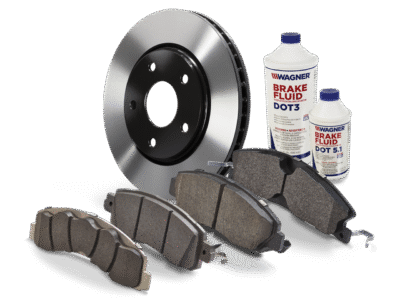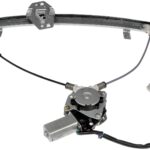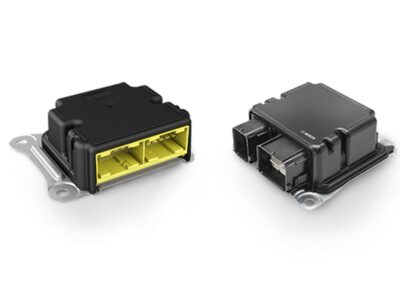
Diagnosing Jerking Engine Problems in the Fiat Tipo

The Fiat Tipo is a popular model known for its comfort and fuel efficiency, but like any vehicle, it can experience engine problems, including jerking or hesitation during acceleration. Diagnosing the cause of a jerking engine in a Fiat Tipo can be challenging due to the complexity of modern engine systems. Various factors, including faulty sensors, fuel system issues, or ignition problems, can contribute to this issue. Understanding the potential causes and following a systematic diagnostic approach is crucial to identifying and resolving the problem efficiently, ensuring the vehicle runs smoothly and maintains its performance and reliability.
Identifying the Root Cause of Jerking Engine Problems in the Fiat Tipo
Diagnosing jerking engine problems in the Fiat Tipo can be a complex task that requires a thorough understanding of the vehicle's engine and transmission systems. The Fiat Tipo is equipped with a range of engine options, including petrol and diesel variants, and the diagnostic approach may vary depending on the specific engine type. To accurately diagnose the issue, it's essential to gather information about the symptoms, including when they occur and under what conditions. This may involve consulting the vehicle's onboard diagnostics system, performing visual inspections, and conducting test drives to replicate the problem.
Common Causes of Jerking Engine Problems
The jerking or hesitation experienced in the Fiat Tipo's engine can be attributed to several factors, including faulty fuel injectors, clogged air filters, or issues with the ignition system. In some cases, the problem may be related to the throttle position sensor or the mass airflow sensor, which can provide incorrect readings, leading to engine hesitation. A thorough inspection of these components is crucial to determining the root cause of the issue.
Diagnostic Tools and Techniques
To diagnose jerking engine problems in the Fiat Tipo, technicians may employ a range of diagnostic tools, including multimeters, scan tools, and oscilloscopes. These tools enable technicians to monitor the engine's performance, identify any error codes, and analyze the data to pinpoint the source of the problem. For example, a scan tool can be used to monitor the engine's fuel trim and ignition timing, providing valuable insights into the engine's operation.
Repairing the Issue
Once the root cause of the jerking engine problem has been identified, the necessary repairs can be carried out. This may involve replacing faulty components, such as fuel injectors or spark plugs, or cleaning clogged air filters. In some cases, a software update may be required to resolve issues related to the engine control unit (ECU). The following table summarizes some common repairs and their associated costs:
| Repair | Cost |
|---|---|
| Replacing faulty fuel injectors | $500-$1000 |
| Cleaning or replacing air filters | $50-$200 |
| Updating ECU software | $100-$300 |
Why is my Fiat 500 jerking?

If your Fiat 500 is jerking, it can be due to various reasons related to its engine, transmission, or other mechanical components. The jerking motion is often associated with the vehicle's hesitation or stuttering when accelerating. This issue can be caused by a range of factors, from faulty spark plugs to problems with the fuel system.
The engine performance of your Fiat 500 plays a crucial role in its overall operation. When the engine is not running smoothly, it can cause the vehicle to jerk. This can be attributed to several factors, including issues with the ignition system or the fuel delivery system.
- Faulty spark plugs or ignition coils can prevent the engine from running smoothly.
- A clogged fuel filter or a malfunctioning fuel pump can disrupt fuel delivery.
- A dirty or faulty mass airflow sensor can cause incorrect air-fuel mixture calculations.
Transmission problems are another common reason for a jerking motion in vehicles like the Fiat 500. The transmission is responsible for transferring power from the engine to the wheels. When it's not functioning correctly, it can cause the vehicle to hesitate or jerk.
You may be interested in reading Fixing Electric Window Malfunctions in the Fiat Tipo
Fixing Electric Window Malfunctions in the Fiat Tipo- A low transmission fluid level can cause the transmission to malfunction.
- Worn-out clutch packs or bands can lead to jerky acceleration.
- A faulty transmission solenoid can disrupt the transmission's ability to shift gears smoothly.
Other Mechanical Factors
Besides engine and transmission issues, other mechanical factors can contribute to the jerking motion of your Fiat 500. These include problems with the vehicle's drivetrain or issues related to the vehicle's computer system.
- A faulty crankshaft or camshaft position sensor can cause the engine to run irregularly.
- Loose or worn-out drive belts can cause vibrations that result in a jerking motion.
- A malfunctioning throttle position sensor can affect the vehicle's acceleration.
How long will a Fiat Tipo last?

The Fiat Tipo is a compact car produced by the Italian manufacturer Fiat since 2015. Its longevity depends on various factors, including maintenance, driving conditions, and model year. Generally, a well-maintained Fiat Tipo can last for a considerable amount of time.
Factors Affecting the Lifespan of a Fiat Tipo
The lifespan of a Fiat Tipo is influenced by several factors. One of the primary considerations is the level of maintenance the vehicle receives. Regular servicing, timely replacement of worn-out parts, and addressing any issues promptly can significantly extend the car's lifespan.
- Regular oil changes and servicing can help prevent engine wear and tear.
- Driving conditions, such as extreme temperatures or frequent stop-and-go traffic, can impact the vehicle's longevity.
- The model year and trim level can also affect the car's reliability and overall lifespan.
Common Issues and Their Impact on Longevity
Some Fiat Tipo models have been known to experience certain issues, such as problems with the transmission or electrical systems. Addressing these issues promptly is crucial to prevent them from becoming major problems that can significantly reduce the car's lifespan.
- Transmission issues can be costly to repair if not addressed early.
- Electrical system problems can cause a range of issues, from minor annoyances to major safety concerns.
- Regular software updates can help prevent or resolve some of these issues.
Maintenance Tips to Extend the Lifespan of a Fiat Tipo
To maximize the lifespan of a Fiat Tipo, owners should prioritize regular maintenance. This includes routine checks and replacements, as well as addressing any issues that arise.
- Regularly checking and maintaining the correct tire pressure can improve fuel efficiency and reduce wear on the tires.
- Replacing the air filter and spark plugs at the recommended intervals can help maintain the engine's performance.
- Keeping the car's exterior and interior clean can help prevent damage and maintain its overall condition.
Are Fiat Tipo good cars to buy?

The Fiat Tipo is a decent car that offers a lot of value for its price. It has a spacious interior, comfortable ride, and a range of engine options. However, its overall quality and reliability are somewhat inconsistent, and some owners have reported issues with the car's build and electronics.
Reliability and Performance
The Fiat Tipo's reliability and performance are mixed. Some owners have reported issues with the car's engine, transmission, and electronics, while others have had a trouble-free experience. The car's performance is also somewhat compromised by its weight and aerodynamics.
You may be interested in reading Fixing Electric Window Malfunctions in the Fiat Tipo
Fixing Electric Window Malfunctions in the Fiat Tipo Maintaining the Fiat Tipo’s Digital Dashboard Display
Maintaining the Fiat Tipo’s Digital Dashboard Display- The 1.4-liter petrol engine is underpowered and not particularly responsive.
- The 1.6-liter diesel engine is more impressive, offering a good balance of power and economy.
- The car's transmission is generally smooth and responsive, but some owners have reported issues with the gearshift.
Interior and Features
The Fiat Tipo's interior is one of its strongest aspects. The car has a spacious cabin with plenty of room for passengers and luggage. The dashboard is well-designed, and the car's infotainment system is easy to use.
- The car's seats are comfortable and supportive, even on long journeys.
- The car's boot is large and versatile, with a capacity of up to 520 liters.
- The car's features list includes a range of standard and optional equipment, such as climate control and a touchscreen infotainment system.
Cost and Value
The Fiat Tipo is generally a good value car, with a competitive price and low running costs. The car's warranty and servicing costs are also relatively low.
- The car's purchase price is competitive with other cars in its class.
- The car's fuel economy is good, especially with the diesel engine.
- The car's insurance costs are relatively low, thanks to its low purchase price and modest performance.
Is the Fiat Tipo discontinued?

The Fiat Tipo is a car model produced by the Italian manufacturer Fiat. To determine if it is discontinued, we need to look at its production history and current status.
Fiat Tipo Production History
The Fiat Tipo was first introduced in 1988 and was produced until 1995. It was then reintroduced in 2015 as a compact car, available in various body styles such as sedan, hatchback, and station wagon. The production of the Tipo has been ongoing since its reintroduction, with updates and facelifts over the years.
The key points in its production history include:
- The original Tipo was produced from 1988 to 1995.
- The Tipo was reintroduced in 2015 as a compact car.
- The current generation has seen updates and facelifts.
Current Status of Fiat Tipo
As of the latest available information, the Fiat Tipo is still listed on Fiat's official website in some markets, indicating it has not been entirely discontinued. However, its availability can vary significantly by region due to market conditions and regulatory requirements.
Some key points about its current status are:
- The Fiat Tipo is still available in certain markets.
- Its availability varies by region.
- Market conditions and regulations influence its availability.
Fiat Tipo Discontinuation Rumors
There have been rumors and speculations about the discontinuation of the Fiat Tipo, particularly in markets where it has not been selling as well as expected. However, without an official statement from Fiat, these remain speculative.
Some points related to discontinuation rumors include:
- Rumors have circulated about the Tipo's discontinuation in certain markets.
- Sales performance has been a factor in these rumors.
- No official confirmation has been made by Fiat regarding discontinuation.
Frequently Asked Questions
What are the common causes of jerking engine problems in the Fiat Tipo?
The common causes of jerking engine problems in the Fiat Tipo include faulty fuel injectors, clogged air filters, or a malfunctioning throttle position sensor. Issues with the ignition system, such as spark plug wear or a faulty ignition coil, can also cause the engine to jerk. Additionally, problems with the engine's computer or a faulty oxygen sensor can contribute to this issue.
How can I diagnose jerking engine problems in my Fiat Tipo?
To diagnose jerking engine problems in your Fiat Tipo, start by checking the air filter and fuel filter for blockages. Use a scan tool to monitor the engine's performance and check for any trouble codes. Inspect the spark plugs and ignition coil for wear or damage. Also, check the throttle position sensor and oxygen sensor for proper function. Test the fuel injectors to ensure they are working correctly.
You may be interested in reading Fixing Electric Window Malfunctions in the Fiat Tipo
Fixing Electric Window Malfunctions in the Fiat Tipo Maintaining the Fiat Tipo’s Digital Dashboard Display
Maintaining the Fiat Tipo’s Digital Dashboard Display Preventing Engine Power Loss in Your Fiat Tipo
Preventing Engine Power Loss in Your Fiat TipoCan a jerking engine problem cause damage to my Fiat Tipo?
Yes, a jerking engine problem can cause damage to your Fiat Tipo if left unaddressed. Continued jerking can lead to increased wear on engine components, such as the catalytic converter, and potentially cause costly repairs. It can also lead to decreased fuel efficiency and performance. Ignoring the issue may result in more severe problems, such as engine stalling or failure to start.
Is it recommended to seek professional help for diagnosing jerking engine problems?
If you're not experienced with car repairs or unsure about the cause of the jerking engine problem, it's recommended to seek professional help. A qualified mechanic can use specialized tools and techniques to diagnose the issue accurately. They can also provide guidance on the necessary repairs and ensure that the problem is resolved correctly, preventing further damage to your Fiat Tipo.

If you want to know other articles similar to Diagnosing Jerking Engine Problems in the Fiat Tipo you can visit the category Fiat Tipo.
Leave a Reply






More content of your interest